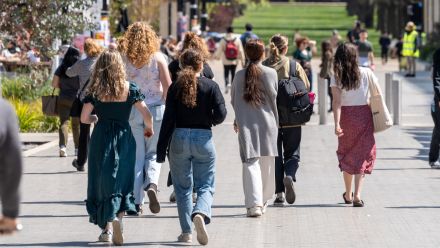Solomon Islands riots reflect deeper unrest
These latest riots are due to the underlying unrest that has been boiling away in the Solomon Islands for many years
Civil unrest in the Solomon Islands is not surprising and highlights long-standing development and governance challenges, according to experts at The Australian National University (ANU).
While the Solomon Islands government's decision in 2019 to switch diplomatic allegiance from Taiwan to China has been reported as the main source of the conflict, ANU experts say deeper issues have caused the unrest, which has seen protests in the capital Honiara and opportunistic looting.
Fellow at the ANU Coral Bell School of Asia Pacific Affairs Dr Kerryn Baker said the unrest highlights much deeper issues in the Solomon Islands.
"These latest riots are due to the underlying unrest that has been boiling away in the Solomon Islands for many years," Dr Baker said.
"The response by the Australian Government is not without precedent. Past assistance missions have helped restore peace."
Distinguished Policy Fellow at the ANU Coral Bell School of Asia Pacific Affairs and former Australian High Commissioner to the Solomon Islands, James Batley said, "Australia's deployment of security personnel to the Solomon Islands was a reminder of the previous RAMSI (Regional Assistance Mission to the Solomon Islands) intervention. But it may also be a sign of things to come.
"We may need to get used to this," he said.
Senior Fellow at the ANU Coral Bell School of Asia Pacific Affairs, Dr Sinclair Dinnen said the civil unrest highlights the fragility of Solomon Islands as a nation.
"While much of the focus over the last two decades of intervention has been on propping up and strengthening the key institutions of the Solomon Islands state, less attention has been paid to the need to build a sense of national community," Dr Dinnen said.
"This is obviously a complex and long-term task and one that needs to be driven by Solomon Islanders. The weakness of national identity and allegiances underlies many of the country's challenges.
"There has also been a lot of behind-the-scenes politicking going on to dislodge the current government, which is symptomatic of the inherently unstable kinds of coalition government that Solomon Islands has had since independence and the patrimonial politics that animates them."


